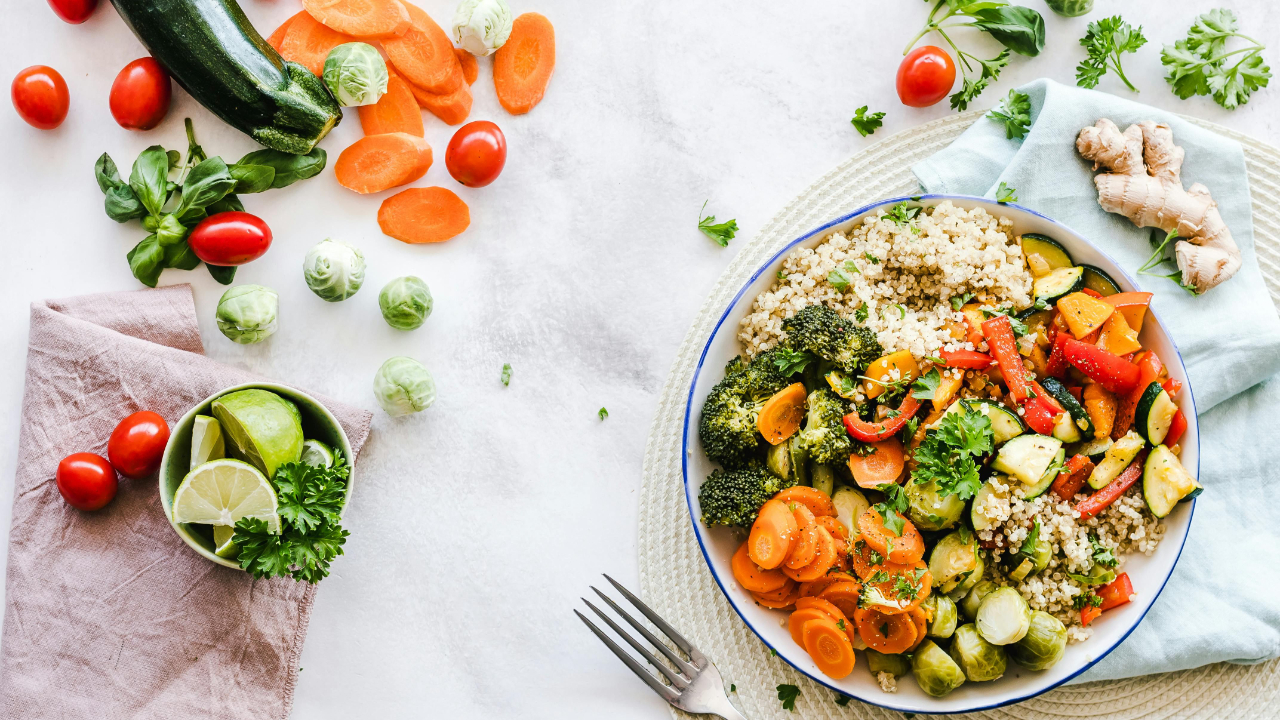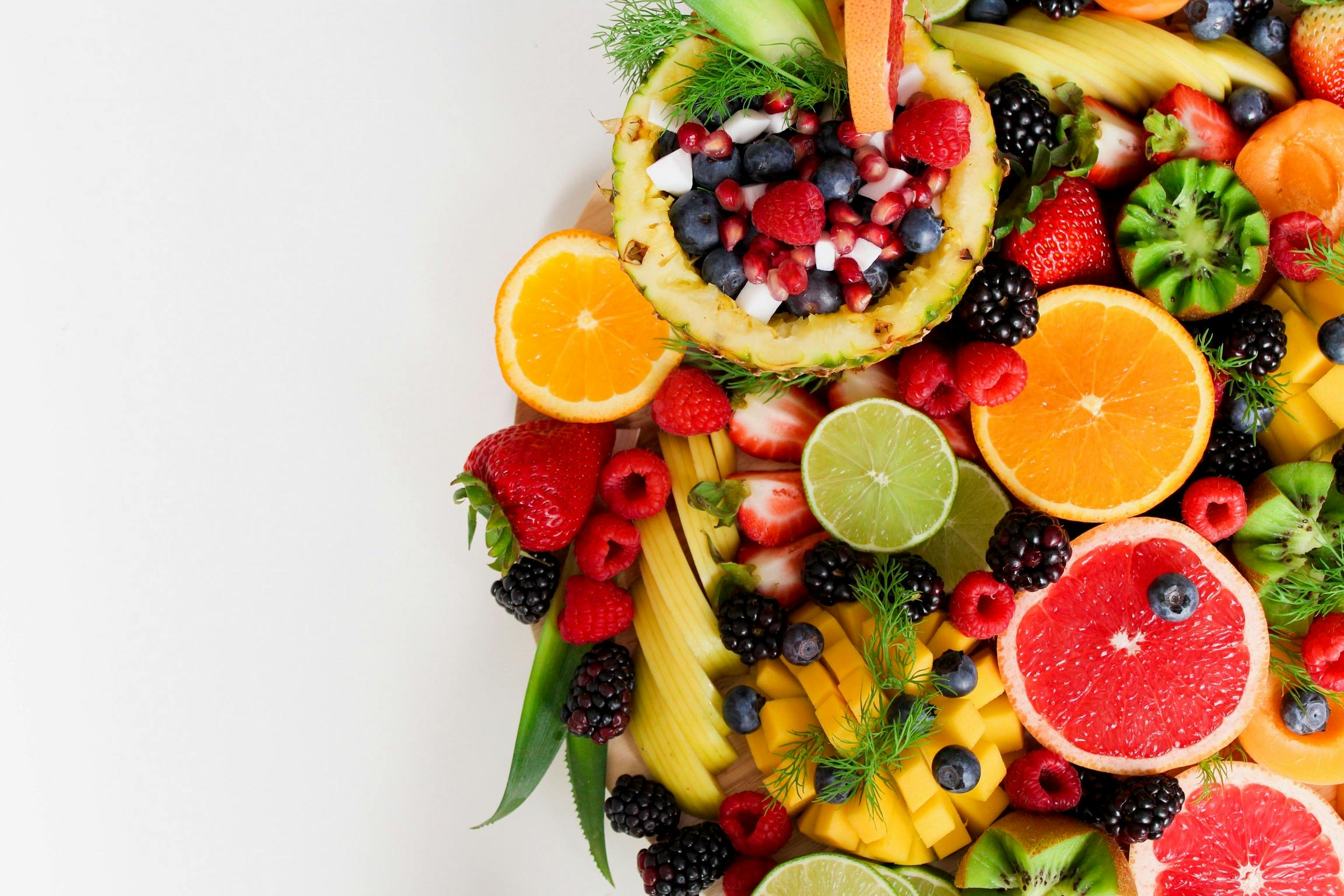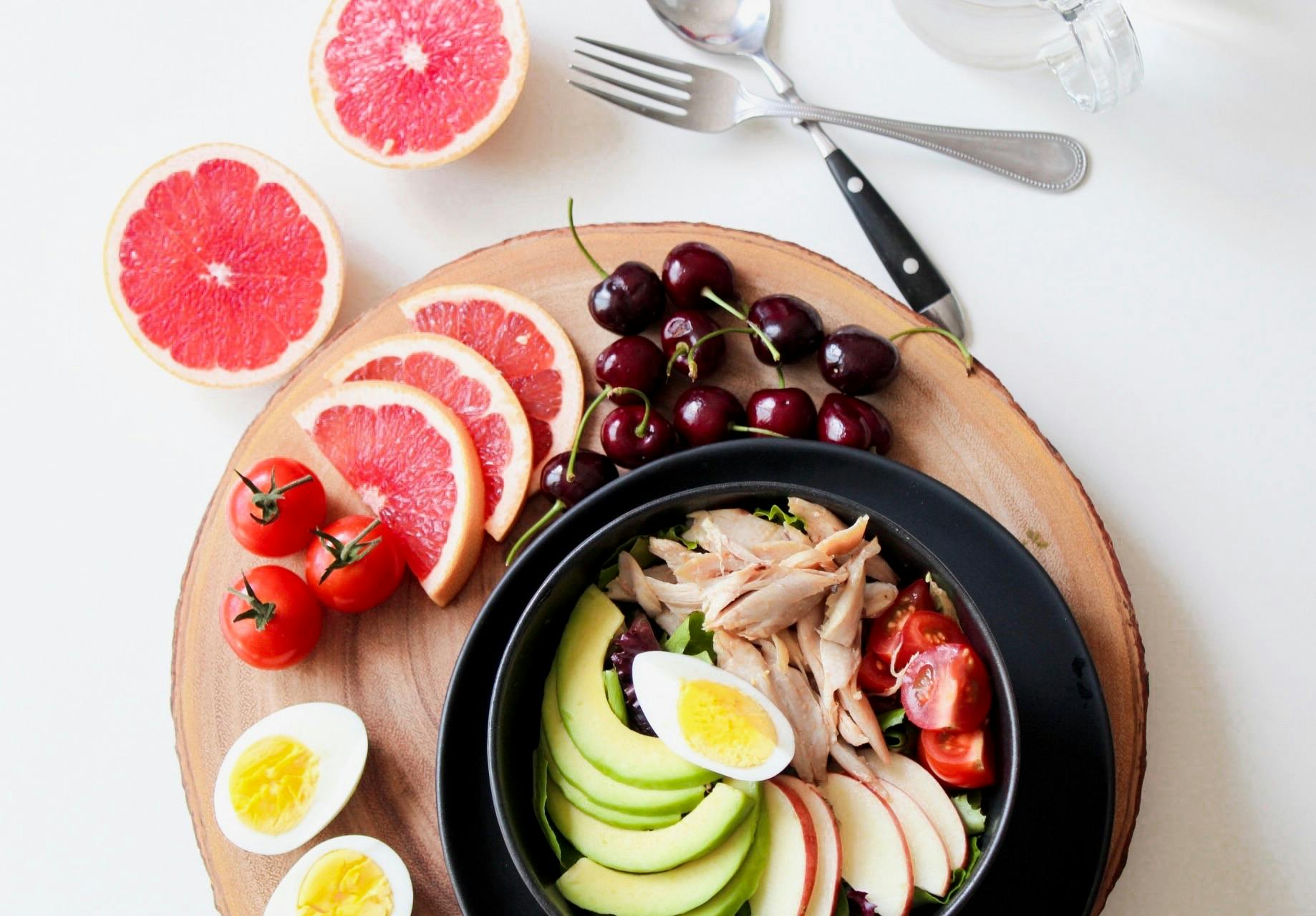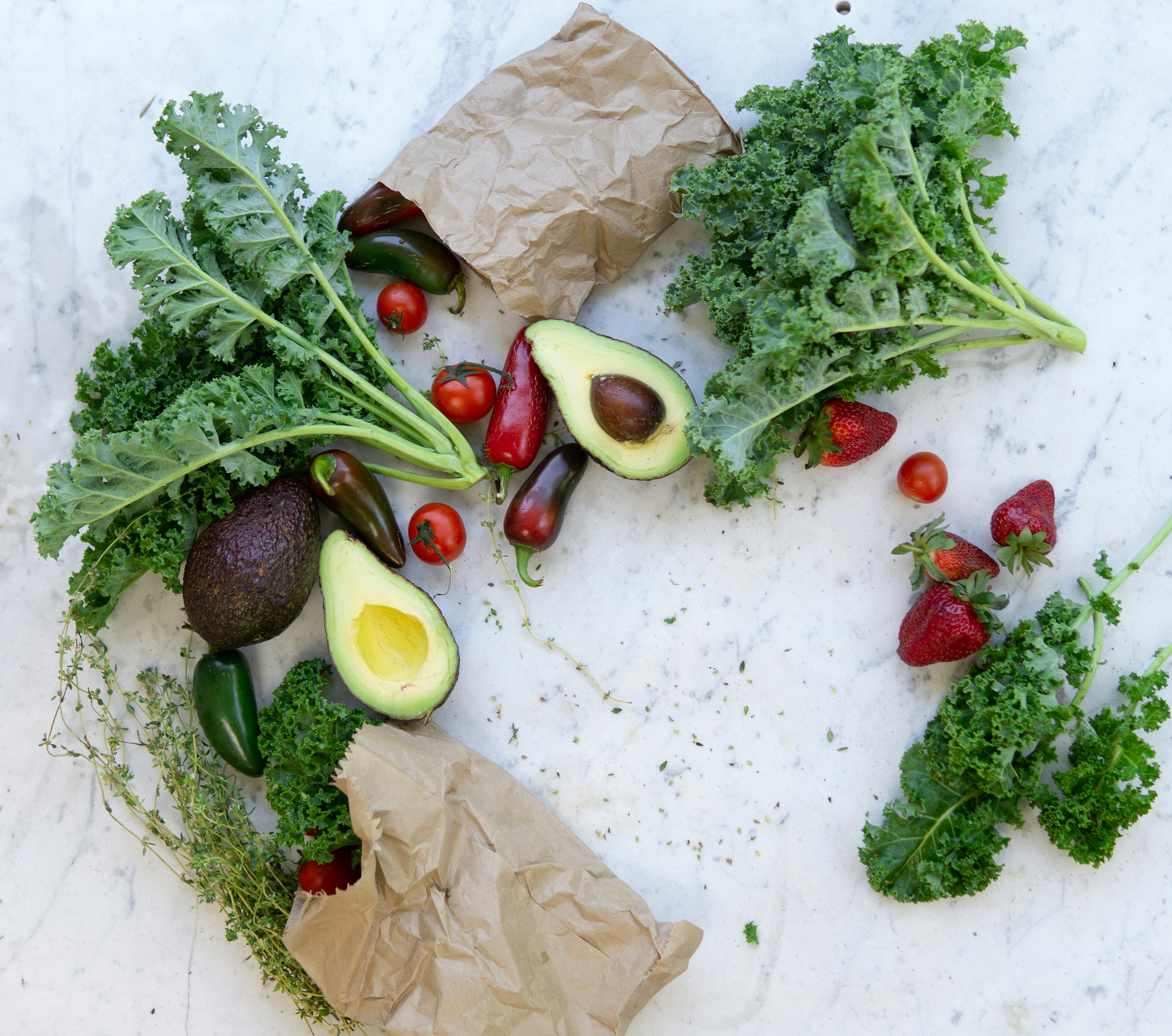The Role of Nutrition in Anxiety: Foods That Help (and Foods That May Worsen It)
Jul 09, 2025
Anxiety affects millions of people and can show up in many forms—from constant worry to panic attacks or social unease. While therapy and medication are common treatments, growing research shows that nutrition also plays a key role in managing anxiety. The connection between what we eat and how we feel isn’t just psychological—it’s biological, with the gut and brain constantly communicating through a complex network. In this post, we’ll explore how your diet can impact anxiety, highlight foods that may help calm your nervous system, and point out those that could potentially make symptoms worse. If you're looking for natural ways to support your mental health, making mindful food choices is a great place to start. Learn more about how anxiety shows up in the body by clicking here.
Table of Contents
Introduction
Anxiety is a common mental health condition that affects millions of people worldwide. It can show up in different forms, such as generalized anxiety disorder (GAD), social anxiety, panic disorder, or phobias, and often involves persistent feelings of worry, nervousness, or fear that interfere with daily life.
While therapy and medication are well-known treatment options, there’s growing recognition of the mind-body connection—specifically, how what we eat can influence how we feel. Emerging research suggests that nutrition plays a key role in brain function, mood regulation, and even the severity of anxiety symptoms. The gut and brain are intricately connected, and the foods we consume can either support or stress this delicate balance.
In this post, we’ll explore which foods may help reduce anxiety, promote emotional well-being, and support brain health. We’ll also look at foods and ingredients that could worsen anxiety by increasing inflammation, disrupting gut health, or spiking stress hormones. Whether you're looking to complement your current treatment or simply feel better day to day, understanding how nutrition fits into the picture is a powerful place to start.
How  Affects Anxiety
Affects Anxiety
The relationship between what we eat and how we feel is more than just psychological—it's biological. At the center of this connection is the gut-brain axis, a communication network linking the gastrointestinal system and the brain. This pathway involves hormones, immune signals, and millions of neurons in the gut, often referred to as the "second brain." In fact, about 90% of the body’s serotonin—a key neurotransmitter that influences mood, sleep, and anxiety—is produced in the gut. When the gut is out of balance due to poor diet, stress, or illness, it can disrupt serotonin production and contribute to emotional instability.
Blood sugar regulation also plays a crucial role. Spikes and crashes in blood glucose—often caused by sugary snacks or skipping meals—can lead to mood swings, irritability, and anxiety-like symptoms. Maintaining stable energy through balanced meals helps keep both mind and body on an even keel.
Additionally, chronic inflammation and nutrient deficiencies can exacerbate anxiety. Diets high in processed foods and low in nutrients like magnesium, B vitamins, and omega-3 fatty acids may increase inflammation and impair the brain’s ability to cope with stress.
It's also important to look at the big picture. While certain foods have been shown to support mental well-being, focusing solely on individual “superfoods” misses the mark. Instead, cultivating an overall dietary pattern—rich in whole foods, fiber, healthy fats, and a variety of nutrients—offers the most consistent support for mental health. Just like anxiety doesn’t stem from a single source, healing and resilience are best supported by a holistic, balanced approach.
Foods That May Help Ease Anxiety
Making intentional food choices can provide steady support for emotional balance and stress resilience. Below are key nutrient-rich foods that have been shown to support mental well-being and help ease symptoms of anxiety:
a. Omega-3 Rich Foods
Omega-3 fatty acids are essential for brain health and emotional regulation. They help reduce inflammation and may lower stress hormone levels.
-
Examples: Salmon, sardines, chia seeds, flaxseeds, walnuts
-
Benefits: Reduce inflammation, support brain function, and may help decrease anxiety symptoms over time.
b. Magnesium-Rich Foods
Magnesium is often referred to as nature’s “chill pill” due to its calming effect on the nervous system. Low magnesium levels have been linked to increased anxiety and difficulty relaxing.
-
Examples: Spinach, pumpkin seeds, black beans, almonds
-
Benefits: Helps regulate the nervous system, ease muscle tension, and reduce stress response.
c. Probiotic and Fermented Foods
A healthy gut microbiome is essential for mental well-being. Probiotic-rich foods help maintain gut health, which supports the gut-brain axis and the production of neurotransmitters like serotonin.
-
Examples: Yogurt with live cultures, kefir, kimchi, sauerkraut, miso
-
Benefits: Promote gut health, improve mood regulation, and enhance the brain-gut connection.
d. Complex Carbohydrates
Unlike refined carbs, complex carbohydrates break down slowly, providing a steady release of energy and helping stabilize mood. They also support the production of serotonin, a neurotransmitter that promotes calm and well-being.
-
Examples: Oats, quinoa, sweet potatoes, brown rice
-
Benefits: Balance blood sugar, prevent mood crashes, and support serotonin production.
e. B Vitamins (Especially B6, B12, and Folate)
These vitamins play a critical role in the synthesis of neurotransmitters like dopamine and serotonin. Deficiencies in B vitamins are linked to increased anxiety, fatigue, and mood swings.
-
Examples: Eggs, leafy greens, lentils, chickpeas, fortified cereals, nutritional yeast
-
Benefits: Support brain function, energy production, and emotional stability.
f. Herbal and Calming Teas
Certain herbal teas contain compounds that can naturally reduce tension and promote relaxation without the side effects of medication.
-
Examples: Chamomile, green tea (in moderation), lavender, lemon balm
-
Benefits: May soothe the nervous system, improve sleep quality, and reduce anxiety symptoms.

Foods and Ingredients That May Worsen Anxiety
Just as certain foods can support emotional well-being, others may amplify anxiety symptoms or interfere with your body’s ability to manage stress. Here are some common culprits to be mindful of:
a. Caffeine
While caffeine can offer a quick energy boost, it’s also a powerful stimulant that can intensify anxiety in sensitive individuals. Too much caffeine can overstimulate the nervous system, especially when consumed on an empty stomach or in high doses.
-
Found in: Coffee, energy drinks, black and green teas, chocolate
-
Why it matters: Can increase heart rate, trigger jitteriness, disrupt sleep, and even mimic panic attacks.
b. Refined Sugar and High-Glycemic Foods
Foods that cause blood sugar to spike and crash can leave you feeling irritable, tired, and anxious. These rapid shifts in glucose levels can affect mood regulation and stress response.
-
Found in: Soda, candy, pastries, white bread, sweetened cereals, processed snacks
-
Why it matters: May contribute to mood swings, brain fog, and increased feelings of anxiety after a sugar crash.
c. Alcohol
Alcohol is often used to "take the edge off," but it can worsen anxiety over time. It acts as a depressant, disrupts sleep cycles, and affects brain chemistry involved in mood regulation.
-
Why it matters: While it may offer short-term relief, alcohol can increase anxiety and irritability in the days following consumption, especially in people prone to anxiety.
d. Processed Foods and Additives
Many processed and convenience foods contain artificial preservatives, colorings, and flavorings that may impact gut health and brain function. They’re often low in the nutrients needed for mental stability.
-
Found in: Fast food, frozen meals, packaged snacks, artificially colored candies
-
Why it matters: May increase inflammation, disrupt the gut microbiome, and impair mood regulation.
e. Trans Fats and Fried Foods
Hydrogenated oils and trans fats used in many fried and processed foods have been linked to increased inflammation and poorer mental health outcomes.
-
Found in: Deep-fried foods, margarine, packaged baked goods
-
Why it matters: May negatively impact brain health, increase oxidative stress, and worsen anxiety symptoms over time.
Tips for Building a Mental-Health Friendly Diet
Small, consistent changes to your eating habits can have a meaningful impact on how you feel day to day. While there’s no one-size-fits-all diet for anxiety, these simple tips can help you build a foundation that supports emotional well-being:
1. Focus on Whole Foods and Variety
Aim to fill your plate with a colorful mix of vegetables, fruits, whole grains, lean proteins, and healthy fats. Whole foods are rich in the nutrients your brain and body need to function at their best.
2. Eat Balanced Meals at Regular Intervals
Skipping meals or eating erratically can lead to blood sugar fluctuations, which may worsen anxiety symptoms. Try to eat balanced meals and snacks throughout the day to keep energy and mood stable.
3. Stay Hydrated
Dehydration can lead to fatigue, poor concentration, and even feelings of irritability or nervousness. Drinking enough water is a simple but often overlooked part of mental wellness.
4. Limit Processed and Ultra-Processed Foods
Highly processed foods are often low in nutrients and high in sugars, unhealthy fats, and additives that may negatively affect mood and gut health. Reducing intake can help support emotional balance.
5. Consider Talking to a Professional
If you’re unsure where to start or have specific health needs, a registered dietitian or mental health professional can help create a personalized plan that supports both your body and your mind.

Cautions and Considerations
While nutrition plays an important role in supporting mental health, it’s essential to recognize that food is not a cure for anxiety. Dietary changes can complement other treatments, but they are not a substitute for professional therapy, medication, or other forms of mental health care when needed.
Everyone’s body and mind are different, and what works well for one person may not have the same effect for another. If you’re considering significant dietary changes—especially if you have a medical condition, food sensitivities, or are currently managing a mental health diagnosis—it’s a good idea to consult with a healthcare provider or registered dietitian. They can help tailor a plan that supports your unique needs and ensures your approach is both safe and effective.
Remember, improving mental health often involves a multifaceted approach that includes self-care, emotional support, therapy, and lifestyle changes—nutrition is just one important piece of the puzzle.
Conclusion
Nutrition is a powerful, yet often overlooked, component of mental health. While it’s not a stand-alone solution, a balanced and nutrient-rich diet can serve as a supportive tool in managing anxiety—working alongside therapy, medication, and other lifestyle strategies to improve overall well-being.
As we've explored, certain foods like leafy greens, omega-3-rich fish, fermented foods, and complex carbohydrates can help promote emotional stability and support brain function. On the other hand, caffeine, refined sugar, alcohol, and heavily processed foods may contribute to increased anxiety, mood swings, or disrupted sleep.
Making dietary changes doesn’t have to be overwhelming. Start small. This week, consider adding one or two anxiety-supportive foods to your meals—like a handful of almonds, a cup of chamomile tea, or a serving of quinoa and roasted veggies. These small steps can begin to build a foundation for better mental and physical health over time.
More Resources
If you are interested in learning more, click here. For more information on this topic, we recommend the following:
Are you passionate about helping others unlock their potential? Our Board Certified Coach (BCC) training, approved by the Center for Credentialing & Education (CCE), equips you with the skills, tools, and certification needed to thrive as a professional coach. Take the next step toward a rewarding coaching career with our comprehensive program! Click here to learn more!
Eat to Beat Depression and Anxiety: Nourish Your Way to Better Mental Health in Six Weeks
DISCLAIMER: As an Amazon Associate we earn from qualifying purchases. This post may contain affiliate links that will reward us monetarily or otherwise when you use them to make qualifying purchases. In addition, there may be non-Amazon affiliate links in this post which means we may receive a commission if you purchase something through a link. However, be assured that we only recommend products that we see genuine value in.
The information provided is for educational purposes only and does not constitute clinical advice. Consult with a medical or mental health professional for advice.
Finances do not have to prevent you from getting support.
Come join our support community.
Where would you like us to send the free support group invite and complimentary workbook?
Your Information Will Be Kept Private




